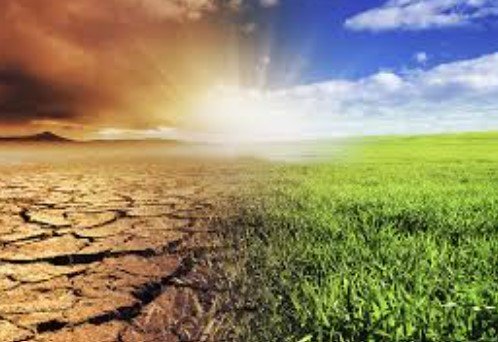The global climate crisis is among the most critical issues humanity faces today. While its effects are felt universally, the Arab region is particularly vulnerable due to its unique geographical and socio-economic factors. Escalating temperatures, diminishing water resources, and an increase in extreme weather conditions are reshaping the region’s environment and economies, posing serious challenges to daily life.
Escalating Heat and Expanding Deserts
Already one of the warmest regions globally, the Arab world is seeing temperatures rise at an alarming rate. By the close of the 21st century, experts predict an increase of 2-4°C in many parts of the region. This warming trend accelerates desertification, threatening agricultural productivity and natural ecosystems. Countries such as Jordan, Iraq, and Morocco are facing the rapid transformation of fertile land into barren landscapes, jeopardizing food production and biodiversity.
A Growing Water Crisis
Water scarcity remains a critical issue in the Arab world, home to just 1% of the planet’s freshwater reserves. Climate change exacerbates this problem by reducing rainfall, depleting rivers, and overusing underground water resources. Nations like Yemen and Egypt are grappling with significant declines in water availability, endangering agriculture, urban development, and public health systems.
Increasingly Severe Weather Events
The region is experiencing more frequent and severe weather phenomena, such as intense heatwaves, destructive floods, and massive sandstorms. Recent years have witnessed catastrophic floods in Sudan and unprecedented high temperatures in Kuwait, underscoring the urgent need for adaptation and mitigation strategies. Such events displace families, strain infrastructure, and cause significant economic losses.
Economic and Societal Challenges
The economic fallout from climate change is profound. Agriculture—a vital industry in many Arab countries—is particularly susceptible. Declining crop yields and livestock losses threaten the livelihoods of rural communities. Urban areas, meanwhile, struggle with overheating, surging energy demands for cooling, and the threat of rising sea levels to coastal cities like Alexandria and Doha.
Socially, climate change is contributing to rising tensions over limited resources and driving migration. Water disputes in shared river basins, such as the Nile, are becoming increasingly contentious. Moreover, deteriorating environmental conditions are forcing many individuals and families to leave their homes, giving rise to the phenomenon of climate refugees.
Progress Toward Sustainability
Amid these challenges, there are promising efforts underway. Arab nations such as the UAE and Saudi Arabia are heavily investing in renewable energy initiatives, including solar and wind power projects. Egypt’s leadership in hosting COP27 showcased the region’s commitment to addressing climate change. Non-governmental organizations and community initiatives are also promoting sustainable solutions, from conserving water resources to replanting forests.
Conclusion
Climate change presents significant risks to the Arab world, yet it also offers an opportunity for unity, innovation, and resilience. By embracing sustainability and fostering regional collaboration, Arab nations can address these challenges head-on and create a more secure and prosperous future for generations to come.







